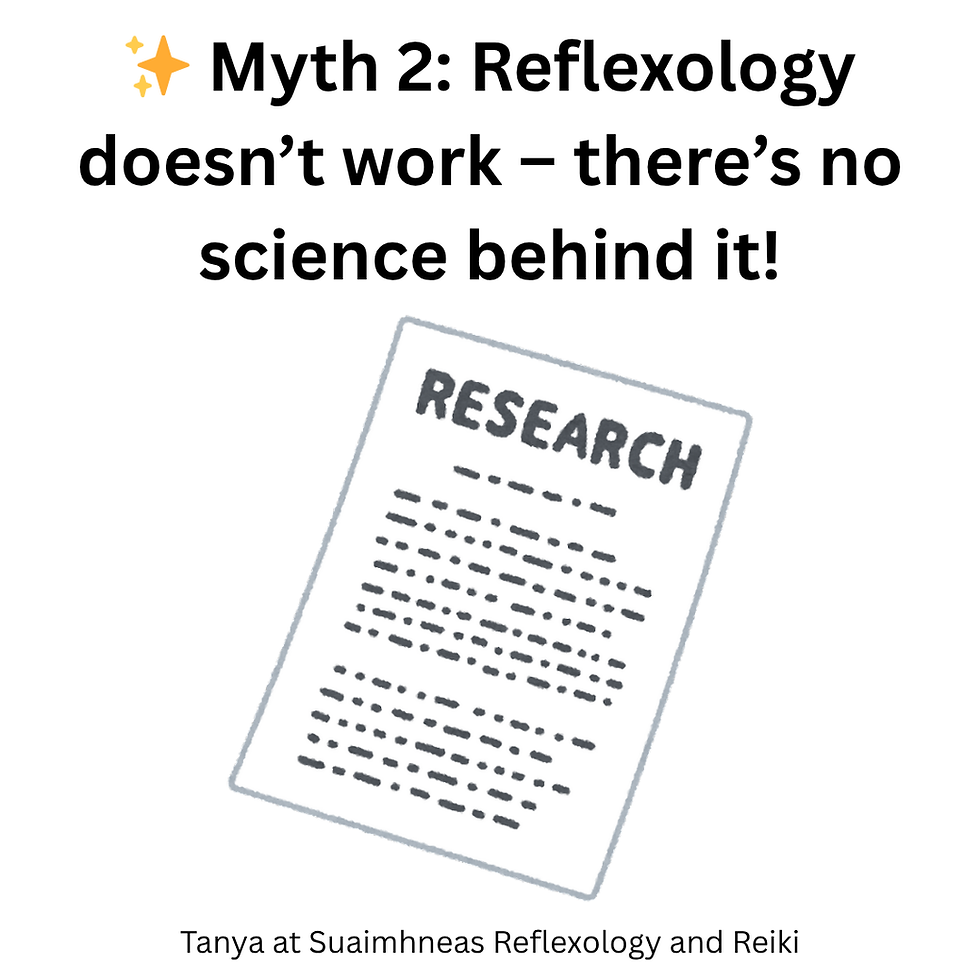✨ Myth 2: “There’s no science to back it up.”
- Tanya

- Aug 3
- 1 min read
Updated: Aug 7
This is a common misconception, but it’s simply not true. While reflexology is often seen as a complementary therapy, more and more research is emerging that supports its physiological effects on the body.
One of the most fascinating developments in reflexology research comes from a recent study using fMRI (functional magnetic resonance imaging). This technology allows scientists to observe brain activity in real time. The study found that stimulation of specific reflexology points on the feet led to measurable changes in the somatosensory cortex—the area of the brain involved in processing touch and body sensations. What’s more, other related areas of the brain also lit up in response to reflexology, indicating broader connectivity and engagement.
These findings suggest that reflexology may have a direct influence on brain function, which could explain why clients often report improvements in pain levels, relaxation, mood, and overall wellbeing. It supports the idea that reflexology isn't just a “feel-good foot rub,” but a therapy that communicates with the nervous system in meaningful ways.
This study is part of a growing body of research aimed at understanding the mechanisms behind reflexology's effects. As with all emerging fields, more research is needed—but the scientific community is beginning to take notice.
You can read more about the study here:👉 Reflexology fMRI Research – Reflexology Research International
Curious to learn more about how reflexology could support your health? Feel free to check out other pages on my website, or message me directly. I’m always happy to chat!
Tanya x



